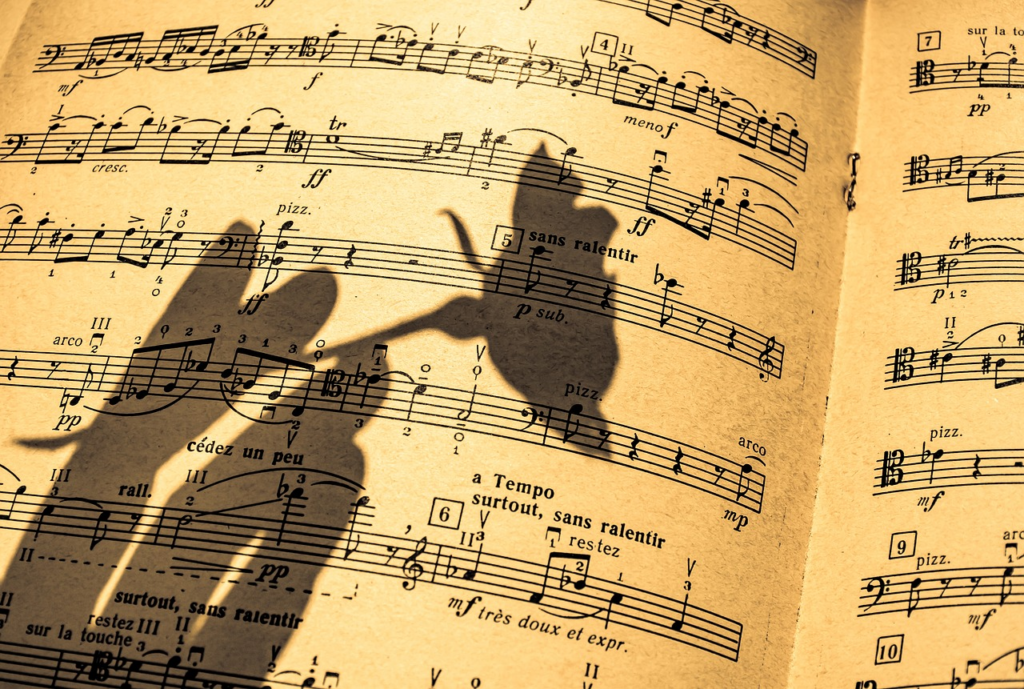In the cinematic world, music plays a fundamental role in creating atmosphere, defining rhythm and evoking emotion. Since the dawn of cinema, directors and composers have collaborated to integrate soundtracks that complement and deepen the visual narrative. Music has the power to transport us to different times, places and states of mind, enriching our connection with the characters and stories presented on screen.
The Importance of Soundtracks
To truly understand the impact of music in cinema, it is essential to recognize its narrative and emotional function. While dialog and images play a central role in conveying the story, the soundtrack acts as an invisible thread, connecting the visual elements and stimulating the viewer's emotions. It can intensify the tension in suspenseful scenes, evoke nostalgia in flashbacks or heighten the climax of an emotional scene.
Music not only accompanies what is happening on screen, but can also add layers of meaning and subtext to images. For example, an apparently simple scene of a character walking down a street can take on new emotional dimensions when accompanied by a melancholy or inspiring soundtrack.
Composition Techniques and the Use of Music in Cinema
Soundtrack composers face the challenge of creating music that complements and enhances the visual narrative, without dominating the scene. They must understand the emotional and thematic context of each scene, as well as the style and tone of the movie as a whole. To achieve this, many composers work closely with directors, editors and sound designers, ensuring that the music integrates seamlessly into the cinematic experience.
There are various compositional techniques that musicians use to evoke specific emotions and enhance the narrative. One of them is the use of leitmotifs, which are short musical themes associated with characters, places or ideas that recur throughout the film. These leitmotifs can be adapted and transformed to reflect the development of the characters or the evolution of the plot.

In addition, the choice of instrumentation and arrangement plays a crucial role in creating the desired atmosphere. An action scene can be accompanied by a large orchestra with resounding drums and blaring brass, while an intimate scene can be enhanced by a soft piano solo or a delicate string melody.
Emotional Effects of Music in Cinema
Music has the unique power to access our emotions in a direct and profound way. In cinema, this translates into a variety of emotional effects that can be achieved through the soundtrack. One of the most important functions of music is to set the emotional tone of a scene or the movie as a whole. It can create a sense of suspense, joy, sadness, fear or hope, often in a matter of seconds.
In addition, music can help viewers connect more deeply with the characters and their emotional journeys. By associating specific leitmotifs with important characters or themes, composers can create an emotional connection between the audience and the story. This allows viewers to experience empathy and compassion for the characters, even if their experiences are very different from our own.
Music also plays a crucial role in building the emotional climax of a movie. When used skillfully, a well-developed musical theme can elevate a scene to new emotional heights, leaving a lasting impression on the viewer. The musical climax can occur during an intense action scene, a moment of emotional revelation or a thrilling outcome, amplifying the emotional impact of the scene and leaving a lasting impression on the viewer's mind.
Notable examples
Countless films throughout the history of cinema have demonstrated the ability to use music to transform the viewer's experience. A classic example is "2001: A Space Odyssey", directed by Stanley Kubrick and featuring a soundtrack composed by Richard Strauss, György Ligeti and Johann Strauss II.
The combination of visually stunning images with an evocative and experimental soundtrack resulted in a truly unique cinematic experience that continues to inspire filmmakers and musicians to this day.
Another notable example is the movie Schindler's List, directed by Steven Spielberg and with a moving soundtrack composed by John Williams. The film's melancholy and moving music perfectly complements the moving story of Oskar Schindler and his struggle to save the Jews during the Holocaust. The soundtrack helps convey the gravity and emotion of the story, leaving a lasting impression on the viewer.
See also: How does the sale of a property financed by Caixa work?
April 21st, 2024

She has a degree in Literature - Portuguese/English, and is the creator of the Escritora de Sucesso website. As a writer, she seeks to expand everyone's knowledge with relevant information on various subjects. At Trend-Topics, she brings news and content ranging from entertainment to the country's economic situation.





